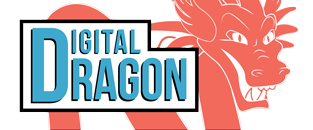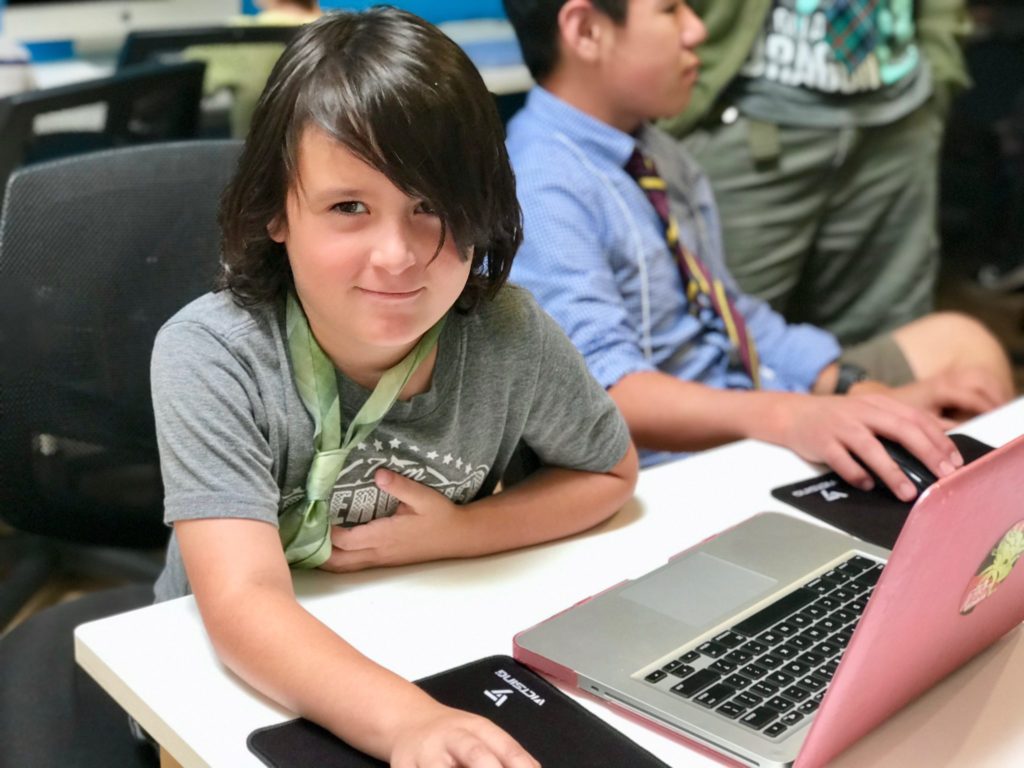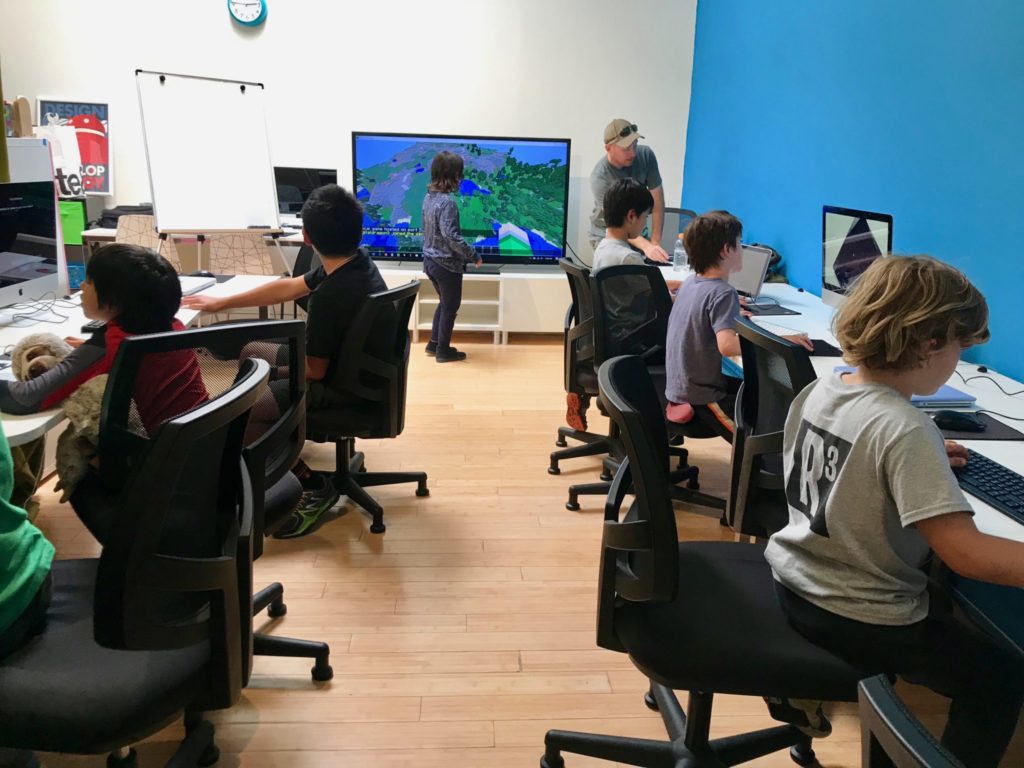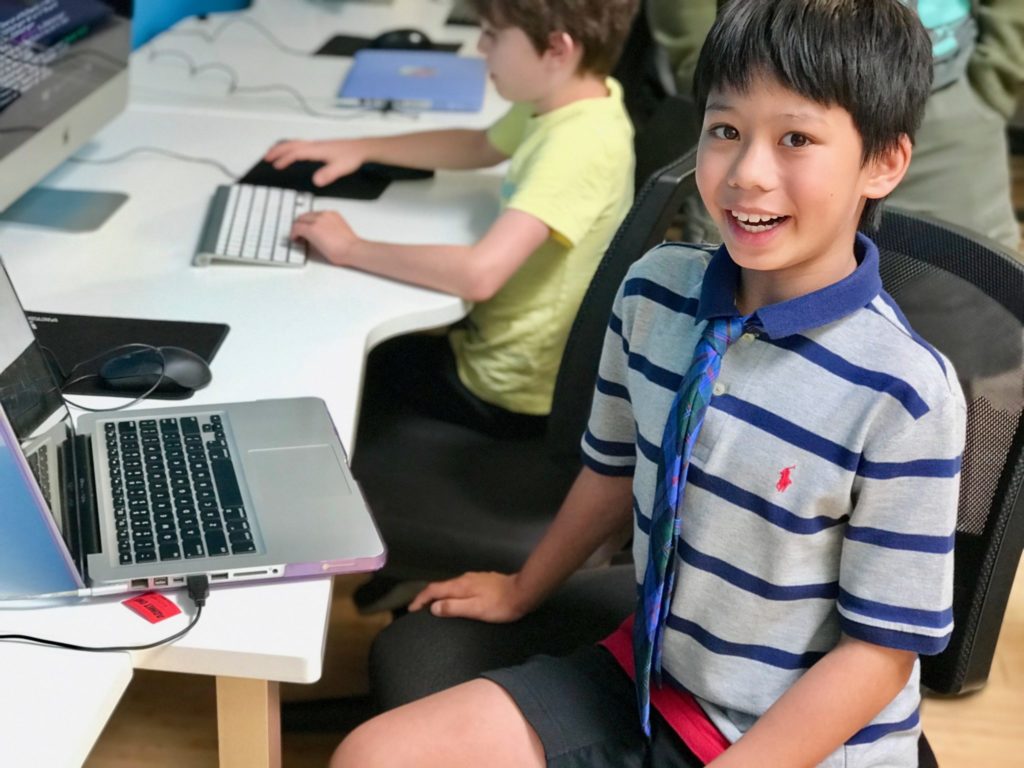With summer camp season kicking into high gear, we thought we’d take a look at what the gamification of media and tech education looks like right now. See what our kids are exposed to and what you should know about the games they are playing.
What Parents Need to Know About Fortnite and League of Legends
Another trip to present at a conference in DC, another gloomy forecast for certain parts of the interactive industry – rays of sunshine in others. This month we will touch on development culture, emerging media, and some familiar lessons. To paint the stage, we need not venture further than Digital Dragon’s backyard. Los Angeles has played host to League of Legends’ (LOL) World Championships over multiple years starting back in 2012. This event was not played out of basements, but rather to a sell out crowd (in less than one hour) at the Staples Center and 8 million online viewers around the world. Since those days, streaming and esports have continued to thrive with last year’s LOL finals watched by 99.6 million unique viewers (44 million concurrent viewers). Mind you, these are just the Finals and do not include other event views from streaming services like Twitch and YouTube Live. Esports are the real thing.
This is a big deal. Naturally developers should be excited about this – they made the games that are showcased. Players should be stoked about this…they’re playing the games and making a name for themselves. Some are even making a living off of it (though very few by the numbers). But who is most excited, and why does this matter? What happens when fun turns a profit?
With revenue from entertainment shattering records almost annually, it’s clear there is plenty of opportunity in the industry. Unfortunately, when fun is forced, it eventually turns into something else. It shouldn’t sound too unfamiliar from the tale we tell in education – and is my current beef with “gamification” in educational settings.
In the current state of games (and w/ tech in schools), products must hit X amount of participants to be a success. Otherwise studios are closed (RIP TellTale), and products are cancelled. Early adopters have wasted time and money on experiences that up and vanish when they’re not Fortnite. Educational apps / games / experiences don’t create the waves that entertainment does, but we’ve certainly seen the same circumstances happen.
In creating the “grind” to stay afloat or stay relevant, creativity can be stifled. When creativity and freedom are taken away from content developers, the quality of the product diminishes as one would naturally expect. What kind of game developer willingly stuffs “pay to win,” “microtransactions,” and “loot boxes” into their artistic expression? When we cram “boxed engagement” into the classroom, who are we serving?
TL;DR – Emerging media is taking the world by storm. Through various platforms we have more access to content that ever before. That content and the people creating it can easily be swept up and added as a cog in the machine. Where’s the ray of sunshine, you ask? There will always be passionate developers and platforms for education that don’t turn to the Darkside and still keep experiences (for entertainment and learning) genuinely fun. Those experiences might just be found in basements, museums, and small studios for learning.
Digital Dragon’s summer camp experience takes all of this into account and offers up a real learning experience without the gamification. Our camps are currently running in our Santa Monica studio as well as many campuses all over the Los Angeles area. Take a peek at what we have on deck for your students this summer. Students can explore technology education that doesn’t fit into their schedule during the school year, including video game design, robotics, programming, video production, and digital design.
John Balash was instrumental in Digital Dragon’s launch in 2013 as its first Curriculum Director and is now back in the fold as a consultant on all the latest and greatest in tech education.This is John’s latest contribution to a monthly blog series we’ve launched, Tech News from the Frontier. John is the Director of Educational Engagement at Carnegie Mellon University’s Entertainment Technology Center. John has worked on educationally focused initiatives with clients ranging from D.A.R.P.A. to Disney. Working from both sides of the desk, you can find John in classrooms and conferences around the world exploring new uses for technologies in learning environments.



